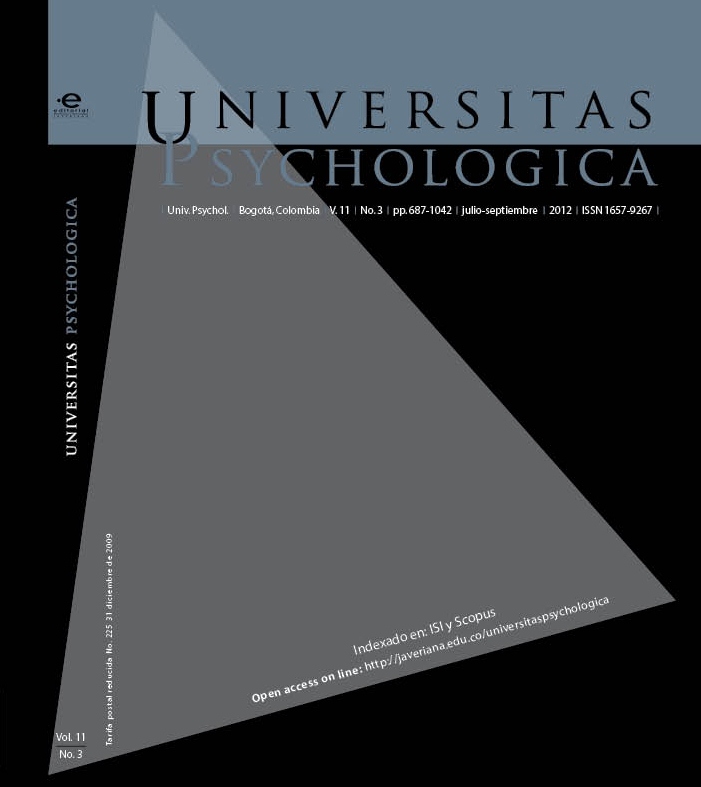Abstract
The present work examines the psychometric properties of the psychological well-being scale proposed by Ryff (Spanish version) in Chilean adolescents. The sample consisted of 335 adolescents from the city of Talca, Chile, who completed the scale of psychological well-being in its version of 39 items validated for Spanish population. Reliability and construct validity analysis was conducted, resulting in a good reliability value for the entire scale, although by dimensions it took values between acceptable and bad. Regarding construct validity, the model proposed by Ryff showed the best theoretical fit compared with alternatives. Both psychometric properties were improved by reducing the amount of items in the scale according to statistical criteria.
This journal is registered under a Creative Commons Attribution 4.0 International Public License. Thus, this work may be reproduced, distributed, and publicly shared in digital format, as long as the names of the authors and Pontificia Universidad Javeriana are acknowledged. Others are allowed to quote, adapt, transform, auto-archive, republish, and create based on this material, for any purpose (even commercial ones), provided the authorship is duly acknowledged, a link to the original work is provided, and it is specified if changes have been made. Pontificia Universidad Javeriana does not hold the rights of published works and the authors are solely responsible for the contents of their works; they keep the moral, intellectual, privacy, and publicity rights. Approving the intervention of the work (review, copy-editing, translation, layout) and the following outreach, are granted through an use license and not through an assignment of rights. This means the journal and Pontificia Universidad Javeriana cannot be held responsible for any ethical malpractice by the authors. As a consequence of the protection granted by the use license, the journal is not required to publish recantations or modify information already published, unless the errata stems from the editorial management process. Publishing contents in this journal does not generate royalties for contributors.


